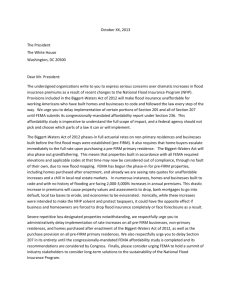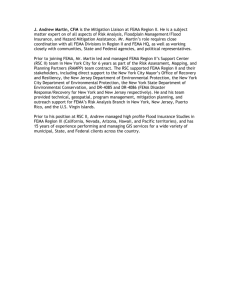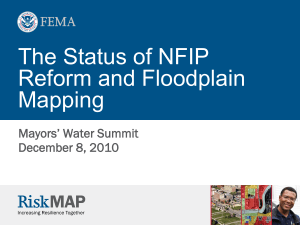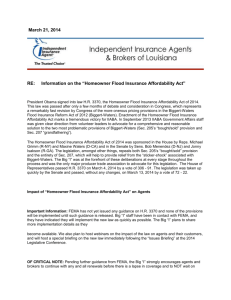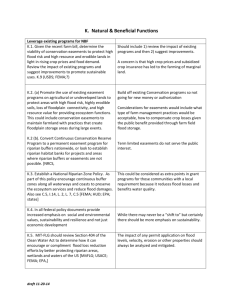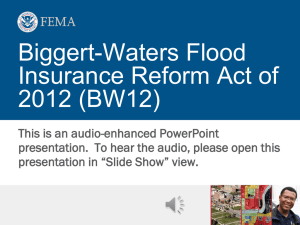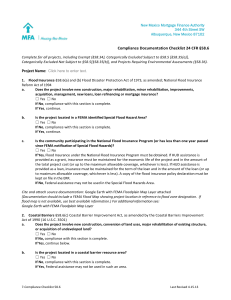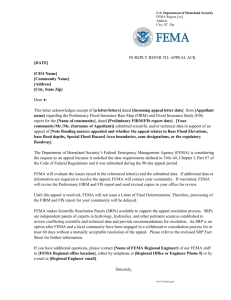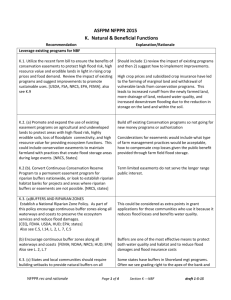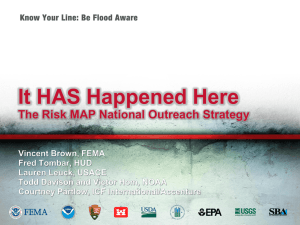Sen Menendez Flood Insur Rates
advertisement
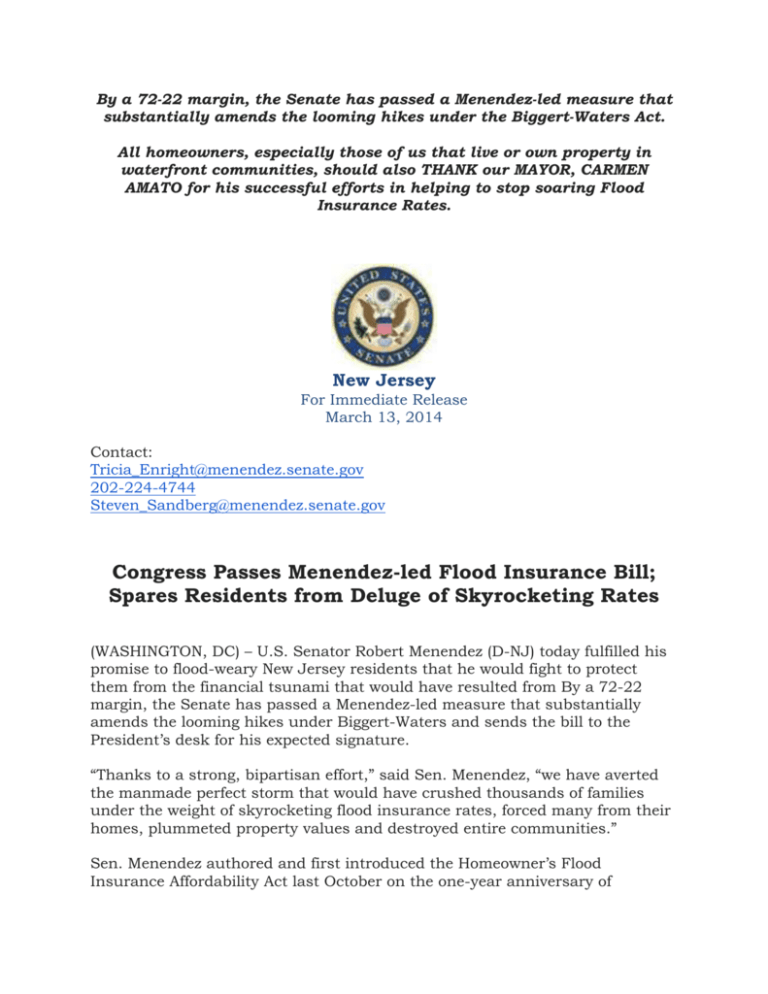
By a 72-22 margin, the Senate has passed a Menendez-led measure that substantially amends the looming hikes under the Biggert-Waters Act. All homeowners, especially those of us that live or own property in waterfront communities, should also THANK our MAYOR, CARMEN AMATO for his successful efforts in helping to stop soaring Flood Insurance Rates. New Jersey For Immediate Release March 13, 2014 Contact: Tricia_Enright@menendez.senate.gov 202-224-4744 Steven_Sandberg@menendez.senate.gov Congress Passes Menendez-led Flood Insurance Bill; Spares Residents from Deluge of Skyrocketing Rates (WASHINGTON, DC) – U.S. Senator Robert Menendez (D-NJ) today fulfilled his promise to flood-weary New Jersey residents that he would fight to protect them from the financial tsunami that would have resulted from By a 72-22 margin, the Senate has passed a Menendez-led measure that substantially amends the looming hikes under Biggert-Waters and sends the bill to the President’s desk for his expected signature. “Thanks to a strong, bipartisan effort,” said Sen. Menendez, “we have averted the manmade perfect storm that would have crushed thousands of families under the weight of skyrocketing flood insurance rates, forced many from their homes, plummeted property values and destroyed entire communities.” Sen. Menendez authored and first introduced the Homeowner’s Flood Insurance Affordability Act last October on the one-year anniversary of Superstorm Sandy. It addressed the egregious problems with the Federal Emergency Management Administration’s (FEMA) National Flood Insurance Program (NFIP), bringing relief to homeowners who desperately needed help, while not significantly impacting the program’s solvency. This legislation passed overwhelmingly in the Senate in January. A companion version— modified in consultation with the Senator—passed the House last week and received the Senate’s final approval today. “Residents had come to me in tears, saying they were afraid they’d lose their homes,” Sen. Menendez said. “Mayors painted a dire picture of desolate blocks lined with abandoned, boarded-up houses and an eroding tax base that would have undoubtedly led to deep service cuts. The fates of families and entire communities hung in the balance. Something had to be done.” http://www.youtube.com/watch?v=0_Z44QmvAwk In 2012, Congress passed Biggert-Waters to restore NFIP’s solvency following Hurricane Katrina through unaffordable rate hikes. As residents continue to rebuild their lives after Superstorm Sandy, those massive increases, due to go into effect next year, would have further threatened the recovery and jeopardized their financial security and adversely impacted the nation’s economy. This new legislation is budget neutral—does not add a dime to the deficit, nor hurt the solvency of NFIP—and prevents skyrocketing rate increases by implementing the following measures: Creates a Firewall on Annual Rate Increases – Prevents FEMA from raising the average rates for a class of properties above 15% and from raising rates on individual policies above 18% per year for virtually all properties. Repeals the Property Sales Trigger – Repeals the provision in BiggertWaters that required homebuyers to pay the full-risk rate for pre-FIRM properties at the time of purchase. This provision caused property values to steeply decline and made many homes unsellable, hurting the real estate market. Under the Menendez/Grimm Bill, homebuyers will receive the same treatment as the home seller. Repeals the New Policy Sales Trigger – Repeals the provision in BiggertWaters that required pre-FIRM property owners to pay the full-risk rate if they voluntarily purchase a new policy. This provision disincentivizes property owners from making responsible decisions and could hurt program participation. The Menendez/Grimm Bill allows pre-FIRM property owners to voluntarily purchase a policy under pre-FIRM conditions. Reinstates Grandfathering – Repeals the provision in Biggert-Waters that would have terminated grandfathering. If grandfathering was terminated, property owners mapped into higher risk would have to either elevate their structure or have higher rates phased in over 5 years. The Menendez/Grimm Bill allows grandfathering to continue and sets hard caps on how high premiums can increase annually. Refunds Homeowners who Overpaid – Requires FEMA to refund policyholders for overpaid premiums. Affordability goal – Requires FEMA to minimize the number of policies with annual premiums that exceed one percent of the total coverage provided by the policy. The Menendez/Grimm Homeowner Flood Insurance Affordability Act of 2014 also establishes the following requirements to enhance FEMA transparency and outreach: Reimburse Successful Appeals – Allows FEMA to utilize the National Flood Insurance Fund to reimburse policyholders and communities who successfully appeal a map determination. FEMA currently has the authority to reimburse successful appeals of map findings, but Congress has never appropriated funding for this purpose. Making appeal reimbursement an eligible expense of the NFIF would give FEMA the incentive to “get it right the first time” and repay homeowners and communities for contribu ting to the body of flood risk knowledge. Flood Insurance Advocate – Establishes a Flood Insurance Advocate within FEMA to answer current and prospective policyholder questions about the flood mapping process and flood insurance rates. The Flood Insurance Advocate will be responsible for educating policyholders about their individual flood risks, their options in choosing a policy, assisting property owners through the map appeals process, and improve outreach and coordination with local officials, community leaders, and Congress. Urban Mitigation Fairness – Requires FEMA to establish guidelines on alternative mitigation methods for urban structures where tradition mitigation efforts such as elevation are impractical, i.e. rowhouses in Hoboken. This section makes clear that such alternative forms of mitigation shall be taken into account in the calculation of risk premium rates. Clear Communication – Requires FEMA to clearly communicate full flood risk determinations to policyholders even if their premium rates are less than full risk. This helps to inform policyholders as to their true flood risk. Fairness for Small Businesses, Houses of Worship, Non-Profits and Low-Income Homes – Requires FEMA to report to Congress on the impacts of rate increases on small businesses, non-profit entities, houses of worship, and residences with a value equal to less than 25% of the area median home value. If FEMA determines there is an effect on affordability for these properties, it must provide recommendations to Congress within 3 months after making the determination. Mapping Accuracy – Requires FEMA to certify its mapping process is technologically advanced and to notify and justify to communities that the mapping model it plans to use to create the community’s new flood map are appropriate. Also requires FEMA to send communities being remapped the data being used in the mapping process. Notification – Requires FEMA, at least 6 months prior to implementation of rate increases as a result of this Act to make publicly available the rate tables and underwriting guidelines that provide the basis for the change, providing consumers with greater transparency. Sen. Menendez said: “This was a bipartisan, bicameral undertaking at a time when many—soured by the often-corrosive tenor in Washington—insisted that it was impossible to achieve. It was a long and tough road, but like the resilient people of New Jersey, I refused to give up and, with a commitment from President Obama to sign this measure into law, I am happy to say, ‘Relief is on the way’.”
